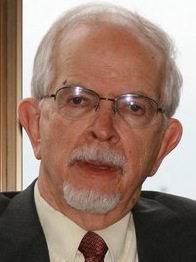The attention just lavished on Iowa February 1, is relatively new. Iowa as a political phenomenon did not burst into the nation's consciousness until 1975 when a former Georgia governor arrived in the state with a wide smile and a friendly greeting, "Hi, my name is Jimmy Carter."
The Atlantic Magazine examines the Carter story:
"Georgia Gov. Jimmy Carter waves to a crowd gather in Atlanta on Thursday, Dec. 12, 1974 where he announced officially that is a Democratic candidate for the presidency. Carter promised to 'restore integrity, confidence and businesslike management to the federal government.' He said in Washington earlier that he plans to run in several state primaries."How did the Iowa caucus ... become such a major political touchstone? With a mere 52 delegates, Iowa has nevertheless become a force in presidential campaigns over the last four decades.
"The caucus, which started in the 1840s, had traditionally fallen in the middle of campaign season. But in 1972, state reforms modernized the process and moved the date from May 20 to January 24, making it the first contest in the election. That's when a campaign worker [actually, his campaign manager] named Gary Hart convinced Democrat George McGovern to take the state seriously.
"But where McGovern took Iowa seriously, it was Jimmy Carter who revolutionized the role that the Hawkeye State would play in presidential politics. Carter turned the Iowa caucus into a major event in 1976 and thereby demonstrated how an upstart campaign could turn a victory in this small state into a stepping-stone for gaining national prominence...
..."Richard Reeves, the editor of New York magazine, told the New York Times that the reporters all needed something to write about and, in January, 'it's Carter.'
"Almost 150 reporters converged on each voting precinct, and the three TV networks had reporters stationed in Iowa to cover the events, all despite the low delegate count.
"On January 19, Carter defeated Birch Bayh by a two-to-one margin. Morris Udall, Scoop Jackson, Fred Harris, and Sargent Shriver didn't come anywhere close. Though the largest number of votes were uncommitted, Carter came in second...
"Understanding that even the victory needed to be carefully choreographed, Carter flew to New York the night of the caucus so that he could stop by the networks the following day. The next morning, he appeared on NBC, CBS, and ABC to discuss his victory in person.
"The media acted exactly as he had expected, giving him airtime and treating him as a major candidate. The rest was history. Carter went on to win in New Hampshire and eventually took the nomination."
Walter Mondale, Carter's Vice President, summed up the Carter-Mondale four years in the White House, in words now etched at the Carter Presidential Library: "We told the truth, we obeyed the law, we kept the peace."
On November 8, the nation's voters will choose a leader who could embody the Carter-Mondale mantra, or voters could select a leader eager to declaim, in the spirit of Rufus T. Firefly, "This means war!"
In the end, it won't be the media, the politicians, nor the financial pooh-bahs who will choose. It will be the voters, starting in Iowa, who will make the final decision.
(Note: You can view every article as one long page if you sign up as an Advocate Member, or higher).






